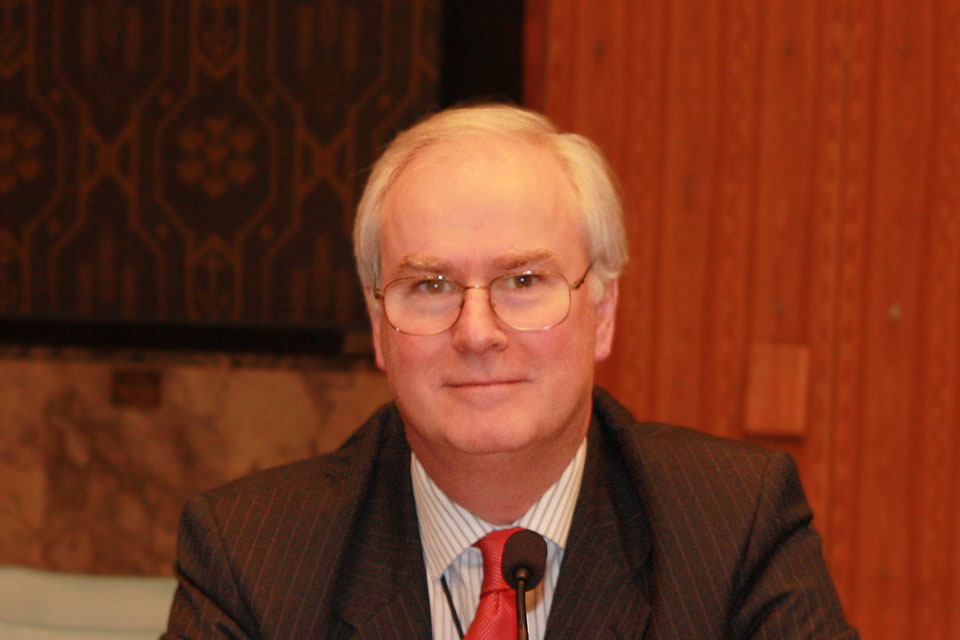"Let us be absolutely clear. It is the continuing Separatist violence that is responsible for the worsening humanitarian situation"
Statement by Ambassador Lyall Grant of the UK Mission to the UN, to the Security Council Meeting on Ukraine – 5 August 2014

I thank Mr Ging for his briefing this afternoon. As we have heard from him, the situation in Separatist-held areas of Eastern Ukraine continues to deteriorate. The number of casualties is rising, public infrastructure is failing and the number of IDPs is growing. Thankfully, we do not have in Ukraine a situation that is comparable to humanitarian crises elsewhere. But that is of little comfort to those Ukrainian civilians who are experiencing increasing levels of daily hardship.
Let us be absolutely clear. It is the continuing Separatist violence that is responsible for the worsening humanitarian situation in the cities of Donetsk and Luhansk. Where there are no Separatists, there is no humanitarian distress.
In those cities and towns that have been liberated by the Ukrainian Government life is returning to normal. IDPs are returning to their homes and the Ukrainian Government is working to repair and re-establish public services. There have been no reprisals.
In contrast, in those areas that remain under Separatist control, civilians are increasingly vulnerable. The UN reports that Separatists have deliberately targeted critical public utilities including water, electricity and sewage plants. They have replaced the rule of law with what the UN describes as “the rule of violence”, creating an atmosphere of fear, intimidation and harassment.
The latest report of the Human Rights Monitoring Mission released on the 15 July leaves little doubt about violent and abusive nature of Separatists groups. It describes in detail their abduction of civilians, their looting, their torture, their killings and their executions of civilians. Recent reports indicate that Separatist groups have been refusing to allow fighting-age men to evacuate the areas under its control.
These illegal armed Separatist groups have no grounds to pursue their campaign of violence. They must lay down their arms, vacate all illegally-seized government buildings and address their grievances through exclusively peaceful and democratic means.
But we must also address the root causes of this situation and not just focus on its symptoms. Despite professing concern for Ukrainian citizens in the East, Russia has at no point called upon the Separatists to cease their violent and illegal insurgency. Instead it has fuelled the crisis, sustained the violence and prolonged the humanitarian distress. It has been equipping Separatists with sophisticated heavy weaponry – including GRAD rocket launchers and artillery, tanks and Surface-to-Air Missiles. It has been recruiting and training fighters and waging a propaganda war on their behalf. There has even been direct shelling of Ukraine from Russian territory.
The truth of the matter is that this is not an insurrection born in the Donbas; it is an insurgency manufactured in Moscow. It is led by Russians, using Russian-supplied weapons, in a deliberate effort to destabilise Ukraine and to exert control over Kyiv.
The profile of the Separatist leaders makes this abundantly clear. Last month Vladimir Antyufeev, joined the ranks of the separatist military command alongside Igor Strelkov and Alexander Boroday. Antyufeev is wanted for his role in suppressing pro-independence demonstrations in Latvia in 1991 and was most recently the KGB Chief in Transnistria. All three of these individuals are Russian citizens, and all three have worked for Russian intelligence.
It is deeply ironic that Russia should call for an emergency meeting of the Council to discuss a humanitarian crisis largely of its own creation.
We agree that there needs to be an end to violence. We agree that alleviating humanitarian distress is a matter of priority. But Russian cannot credibly present itself as supporting the people of Eastern Ukraine when it is the architect of the violence that afflicts them.